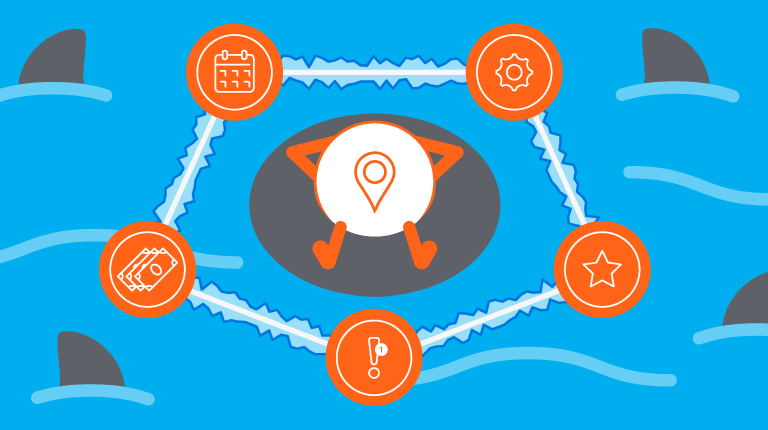Imagine it’s the dead of winter, and outside the snow has been steadily accumulating all day. But inside, the heat is on, the food is warm, and you’ve been happily binge-watching the latest Netflix/Amazon/HBO series for the past few hours. The comforts of the living room almost make the dreary conditions outside bearable. That is, until several weeks later when your monthly utility bill arrives.
Whether it’s due to the cold or the heat, the fact is that we all have experience dealing with seasonal weather changes and the associated costs of these. This, combined with the increased chance of outages as winter storms roll through and summertime cooling usage puts extra stress on the electric grid, means you may be contacting your utility company much more at certain times of the year than others.
So what’s the best way to manage these seasonal spikes? We’ve used utility company data to put together some insights on how you can adjust with the weather to make the most of both your time and budget.
Be Proactive
Does your utility company offer proactive outbound messaging for storm notifications or potential service interruptions? If they do, make sure you’re signed up so you can be prepared when a storm hits. Calls and messages to utility customer service centers peak around outage events, so if you need to report an outage, research the most efficient way to report an outage ahead of time. For instance, can you text your utility instead of calling? This could save you a lot of time, and even get your power or service up and running much faster.
Plan for Seasonal Spikes Early
Data shows that peak seasons result in more customers calling or contacting utilities to set up payment management plans. As peak seasonal bills reach amounts that are double or triple those of off-peak bills, many of us have a hard time adjusting. While your first instinct might be to call your utility to set up a payment plan or discuss rate options, you should know that a significant number of customers in your area are doing the exact same thing. Meaning call volumes and wait times will be higher than normal.
So how can you adjust? Recognize early on that the costs associated with extreme cold or heat have an impact on your budget, and contact your utility company to discuss options before the seasonal changes occur. That way, you’ll have a better chance of getting quick and efficient service, while being able to sign up for the plan that best meets your needs.
Seasonal spikes in summer or winter can have a significant impact on your utility budget. But with early planning and proactive behavior, you can take the stress and anxiety out of planning for these changes.




